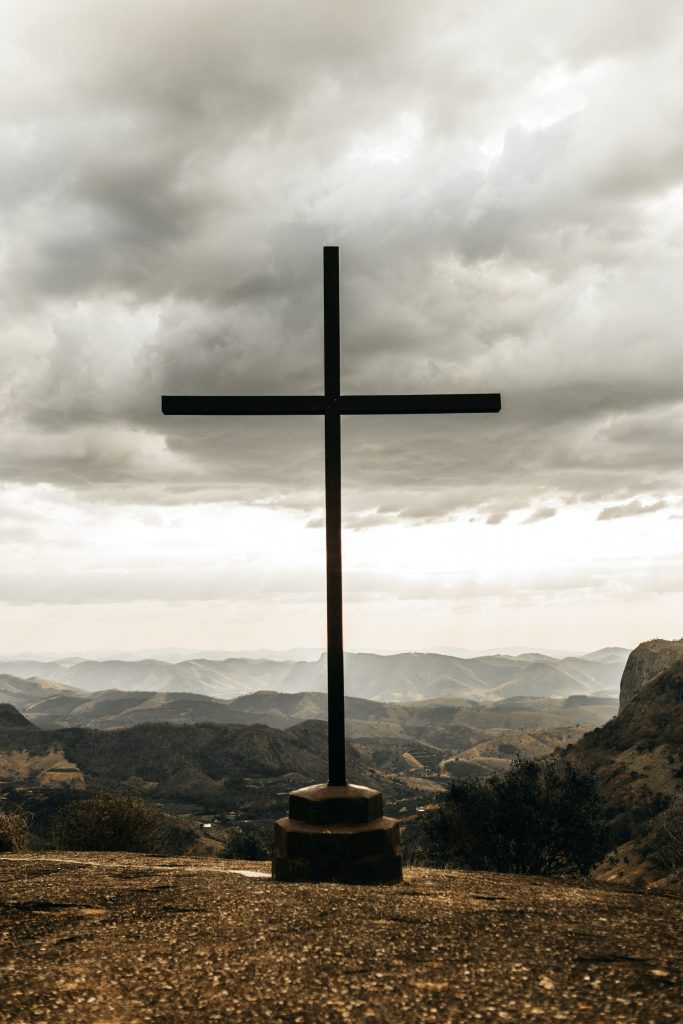Home > Future hope
Future hope
By Jack Barraclough
Lots of us live for the weekend. Whatever struggles the week throws our way, we grind through them, fixing our eyes on the promise of the weekend. Our hope for a time of rest or celebration gives us endurance because we know that our professional pressures will not last forever. In busy seasons, when weekends give us no reprieve, we set our eyes on the upcoming holidays, the end of the project or the baby sleeping through the night. Having a hope for the future is powerful when life is hard.
All of us go through hard times. When suffering comes our trust in God can be shaken. It can raise questions about God’s goodness, his promises to us, his love and faithfulness. We can see these same questions wrestled with in the pages of the Bible.
Job reflects on the suffering of a righteous man who through no fault of his own loses his family, his wealth and his health. This is the kind of suffering that comes from following God’s ways in a world that opposes those ways. This is not suffering because of God’s judgement. It is the kind of suffering Jesus went through and which all believers should expect to experience. (In this article we won’t be focusing on this type of suffering.)
Other books focus on other forms of suffering. Lamentations mourns the suffering of a whole nation when Babylon conquers them, destroying the Temple in Jerusalem and uprooting the Jewish people from their homeland. As these questions are wrestled with we see the conviction that God is still worthy of our worship.

Habakkuk
In the seventh century BC, Habakkuk, a Jewish prophet, wrestled with these questions, beginning his book with: ‘O LORD, how long shall I cry for help, and you will not hear?’ In the next two chapters, Habakkuk has a conversation with God about how God’s people are suffering because there appears to be no just judgement on the people that are causing pain and heartache. God warns Habbukuk that there will be a lot more suffering still to come.
God will respond to the darkness in the world, but this does not mean in the short term Habakkuk will see the end of his suffering. If anything, he will see more of it as God’s people must suffer just judgement first before it is carried out on the nations that oppress them. But… there is a long term vision in sight. God’s judgement may feel as if it adds woes to the world in the short term but it has a goal: ‘The earth will be filled with the knowledge of the glory of the LORD as the waters cover the sea.’
A powerful hope for the future
The earth is designed to be filled with God’s presence. It was created to display his majesty, the knowledge of his glory. Actually, we were created to reveal these things on the earth too but instead we turned away from God and took life into our own hands. This allowed darkness and suffering in, to be part of our world.
Ultimately, God’s final judgement will result in the removal of all evil, darkness and suffering from the world and set it free from the bondage to sin – and He will do so based on the judgement that has already been carried out in full at the cross – ‘It is finished’.
In the interim, God’s actions as experienced by Habbakuk and by us today, has the purpose of calling people to repent and return to Him, such that we are ready for when He finally comes to live among us. His plan is to set the world free from darkness and evil and prepare it to receive himself. His love, faithfulness, justice, majesty and beauty will be known and there will be no room in this world for anything that doesn’t clearly display the goodness of God. No evil, no suffering. This is a powerful hope for the future.


God’s commitment
This hope transforms Habakkuk’s struggle with the suffering he sees in his country. He recognises that in the midst of the chaos around him, God is committed to fulfilling the purpose of the world. He has not abandoned his creation. He is at work, preparing it for an incredible future. Habakkuk realises that God is indeed good, that he is keeping his promises and actively bringing about a world that will be full of justice, peace and love. His hope for the future allows him to trust God despite suffering, and his book finishes with a heartfelt prayer:
‘Though the fig tree should not blossom, nor fruit be on the vines, the produce of the olive fail and the fields yield no food, the flock be cut off from the fold and there be no herd in the stalls, yet I will rejoice in the LORD; I will take joy in the God of my salvation. GOD, the Lord, is my strength; he makes my feet like the deer’s; he makes me tread on my high places.’
Thinking about what God is doing to give us a hope for the future can help us to trust him. And having this hope and this trust can bring us to a place where, like Habakkuk, we are able to worship God despite our suffering. But there might still be a struggle. Maybe we are willing to wait, but why do we have to?
Responding to His call
Peter, one of Jesus’ disciples who became a leader of the Church, answers this question in one of his open letters to the Church. ‘The Lord is not slow to fulfil his promise as some count slowness, but is patient towards you, not wishing that any should perish, but that all should reach repentance.’ God could have taken all the evil and suffering out of the world a long time ago. But if he had, we wouldn’t have ever been able to see it.
The evil in the world is not just something external that we need God to do something about. It’s also in us. We are part of the problem. We bring suffering into the world, we make selfish, bad decisions. If God made a perfect world now, we would quickly reintroduce most of the problems that this one already has. Rather than rush ahead to recreate the world without us, God patiently waits for us to respond to his call.
Determine that you will turn away from your contribution to the suffering in the world and ask God to make you into someone who can become an expression of his love, justice, majesty and beauty, so that you will be ready and prepared for the day when all things will be filled with the knowledge of his glory.

Talk to a Mentor
What hit home for you in this article? Would you like to discuss anything in particular?
Just fill in the form below and one of our mentors will get back to you as soon as possible.
Our mentors aren’t counsellors, but they are ordinary people willing to join others on their spiritual journey in a compassionate and respectful manner.

